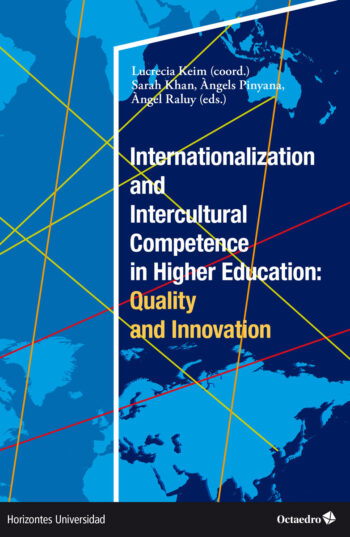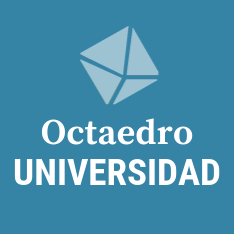
DATA EDITION
PDF digital edition
Reference: 09501-1
Date: Junio, 2022
Size: 174 (3,5 MB)
Internationalization and Intercultural Competence in Higher Education: Quality and Innovation
Coordination: Lucrecia Keim
Edition: Sarah Khan, Àngels Pinyana, Àngel Raluy
Contibutors: Alessandra Romano, Àngel Raluy Alonso, Àngels Pinyana Garriga, Anna Schmaus-Klughammer, Carlo Orefice, Francisco Javier Montiel Alafont, Iciar Elexpuru-Albizuri, Joan Masnou Suriñach, Juan Antonio De Los Cobos-Molina, Luana Ferreira-Lopes, Lucrecia Keim Cubas, María José Bezanilla Albisua, Marta Fernández Villanueva, Marta Panadés Guerrero, Montse Romero-Mas, Montserrat Vancells Flotats, Patrick Studer, Qian Zhang, Sarah Khan, Thomas Spittler
Presentación
This volume contributes to the construction and definition of comprehensive and sustainable internationalization and emphasizes the need for interdisciplinary, transversal and hybrid learning. The majority of contributions have emerged from the Spanish higher education context, but the topics addressed are believed to resonate worldwide with higher education institutions, professional practice and 21st century society. In the first part of the book, the chapter contributions shed light on systemic, conceptual or programme features related to internationalization and global and intercultural competence in higher education. In the second part the authors present concrete teaching experiences of internationalization and intercultural competence and highlight different questions related to interdisciplinary work, digitalization, collaborative online international learning (COIL) and project learning. By embedding COIL within and across course programmes, participants who would otherwise be unable to take part in international exchanges are included. This respect for diversity, as well as active and reflective engagement in international communication with an emphasis on students’ own experiences are fundamental elements of this pedagogical approach. The book concludes by advocating sustainable internationalization through an interdisciplinary approach to intercultural competence training which is integrated into the curriculum.
Índice
Foreword
PART I: QUALITY AND INNOVATION IN INTERNATIONALIZATION
Chapter 1. Re-visiting English-medium instruction in the light of comprehensive internationalization – A case for sociocultural competence (Patrick Studer)
Chapter 2. Internationalization as strategic leverage for innovation in Higher Education (Alessandra Romano, Carlo Orefice)
Chapter 3. Diversity, management and identity politics – A critical view from a fuzzy-culture perspective (Francisco Javier Montiel Alafont)
Chapter 4. Intercultural competence in the international classroom – The lecturers’ perception (Àngels Pinyana, Lucrecia Keim, Montserrat Vancells)
Chapter 5. Fostering global and intercultural competence at a medium-sized university
(Lucrecia Keim, Sarah Khan, Joan Masnou, Àngels Pinyana, Àngel Raluy)
PART II: INTERNATIONALIZATION AND INTERCULTURAL COMPETENCE: BEST TEACHING PRACTICES
Chapter 6. Discursive, pragmatic and interactional aspects of intercultural competence – Contributions from interactional linguistics for meaningful learning (Marta Fernández-Villanueva)
Chapter 7. Making intercultural competence meaningful in the classroom and in international mobility programmes (Marta Panadés)
Chapter 8. Intercultural virtual collaboration in perspective – Overall conclusions and developments from two international inter-university collaborations (Luana Ferreira-Lopes, María José Bezanilla, Iciar Elexpuru-Albizuri)
Chapter 9. Internationalization at home – Joint study project between Spanish and Finnish engineering students (Qian Zhang)
Chapter 10. Joint approach to interdisciplinary teaching (Juan Antonio De Los Cobos-Molina
Montse Romero-Mas, Anna Schmaus-Klughammer, Thomas Spittler)








